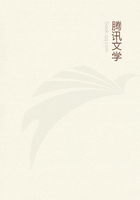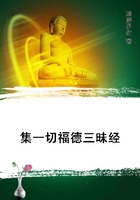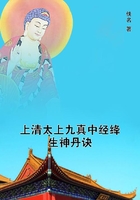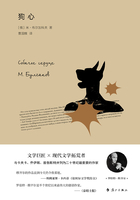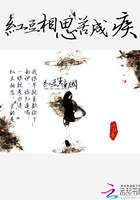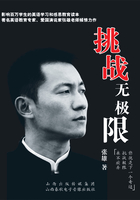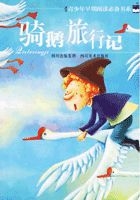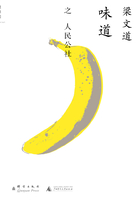Soc. Let me now remind you of what I was saying to Gorgias and Polus; I was saying, as you will not have forgotten, that there were some processes which aim only at pleasure, and know nothing of a better and worse, and there are other processes which know good and evil. And I considered that cookery, which I do not call an art, but only an experience, was of the former class, which is concerned with pleasure, and that the art of medicine was of the class which is concerned with the good. And now, by the god of friendship, I must beg you, Callicles, not to jest, or to imagine that I am jesting with you;do not answer at random and contrary to your real opinion-for you will observe that we are arguing about the way of human life; and to a man who has any sense at all, what question can be more serious than this?-whether he should follow after that way of life to which you exhort me, and act what you call the manly part of speaking in the assembly, and cultivating rhetoric, and engaging in public affairs, according to the principles now in vogue; or whether he should pursue the life of philosophy-and in what the latter way differs from the former. But perhaps we had better first try to distinguish them, as I did before, and when we have come to an agreement that they are distinct, we may proceed to consider in what they differ from one another, and which of them we should choose. Perhaps, however, you do not even now understand what I mean?
Cal. No, I do not.
Soc. Then I will explain myself more clearly: seeing that you and I have agreed that there is such a thing as good, and that there is such a thing as pleasure, and that pleasure is not the same as good, and that the pursuit and process of acquisition of the one, that is pleasure, is different from the pursuit and process of acquisition of the other, which is good-I wish that you would tell me whether you agree with me thus far or not-do you agree?
Cal. I do.
Soc. Then I will proceed, and ask whether you also agree with me, and whether you think that I spoke the truth when I further said to Gorgias and Polus that cookery in my opinion is only an experience, and not an art at all; and that whereas medicine is an art, and attends to the nature and constitution of the patient, and has principles of action and reason in each case, cookery in attending upon pleasure never regards either the nature or reason of that pleasure to which she devotes herself, but goes straight to her end, nor ever considers or calculates anything, but works by experience and routine, and just preserves the recollection of what she has usually done when producing pleasure. And first, I would have you consider whether I have proved what I was saying, and then whether there are not other similar processes which have to do with the soul-some of them processes of art, making a provision for the soul's highest interest-others despising the interest, and, as in the previous case, considering only the pleasure of the soul, and how this may be acquired, but not considering what pleasures are good or bad, and having no other aim but to afford gratification, whether good or bad. In my opinion, Callicles, there are such processes, and this is the sort of thing which I term flattery, whether concerned with the body or the soul, or whenever employed with a view to pleasure and without any consideration of good and evil. And now I wish that you would tell me whether you agree with us in this notion, or whether you differ.
Cal. I do not differ; on the contrary, I agree; for in that way Ishall soonest bring the argument to an end, and shall oblige my friend Gorgias.
Soc. And is this notion true of one soul, or of two or more?
Cal. Equally true of two or more.
Soc. Then a man may delight a whole assembly, and yet have no regard for their true interests?
Cal. Yes.
Soc. Can you tell me the pursuits which delight mankind-or rather, if you would prefer, let me ask, and do you answer, which of them belong to the pleasurable class, and which of them not? In the first place, what say you of flute-playing? Does not that appear to be an art which seeks only pleasure, Callicles, and thinks of nothing else?
Cal. I assent.
Soc. And is not the same true of all similar arts, as, for example, the art of playing the lyre at festivals?
Cal. Yes.
Soc. And what do you say of the choral art and of dithyrambic poetry?-are not they of the same nature? Do you imagine that Cinesias the son of Meles cares about what will tend to the moral improvement of his hearers, or about what will give pleasure to the multitude?
Cal. There can be no mistake about Cinesias, Socrates.
Soc. And what do you say of his father, Meles the harp-player? Did he perform with any view to the good of his hearers? Could he be said to regard even their pleasure? For his singing was an infliction to his audience. And of harp playing and dithyrambic poetry in general, what would you say? Have they not been invented wholly for the sake of pleasure?
Cal. That is my notion of them.
Soc. And as for the Muse of Tragedy, that solemn and august personage-what are her aspirations? Is all her aim and desire only to give pleasure to the spectators, or does she fight against them and refuse to speak of their pleasant vices, and willingly proclaim in word and song truths welcome and unwelcome?-which in your judgment is her character?
Cal. There can be no doubt, Socrates, that Tragedy has her face turned towards pleasure and the gratification of the audience.
Soc. And is not that the sort of thing, Callicles, which we were just now describing as flattery?
Cal. Quite true.
Soc. Well now, suppose that we strip all poetry of song and rhythm and metre, there will remain speech?
Cal. To be sure.
Soc. And this speech is addressed to a crowd of people?
Cal. Yes.
Soc. Then, poetry is a sort of rhetoric?
Cal. True.
Soc. And do not the poets in the theatres seem to you to be rhetoricians?
Cal. Yes.

